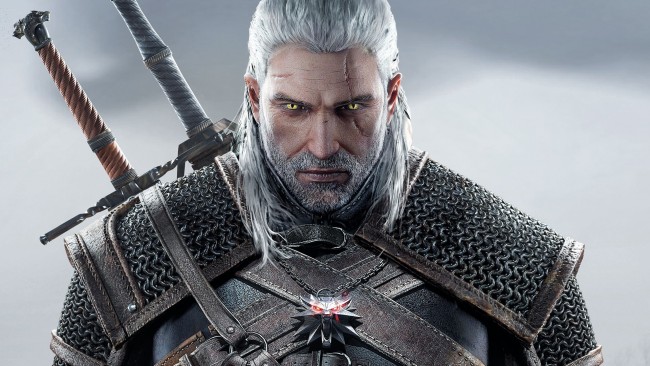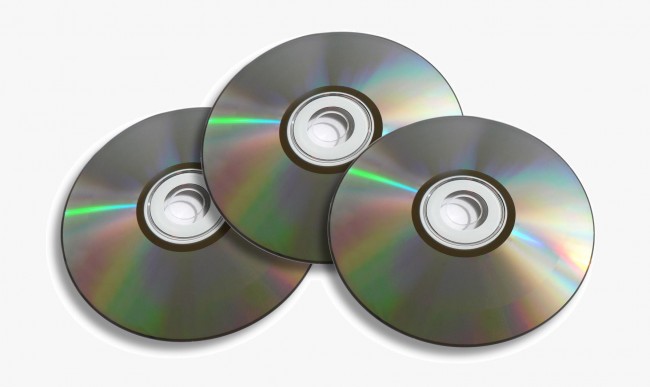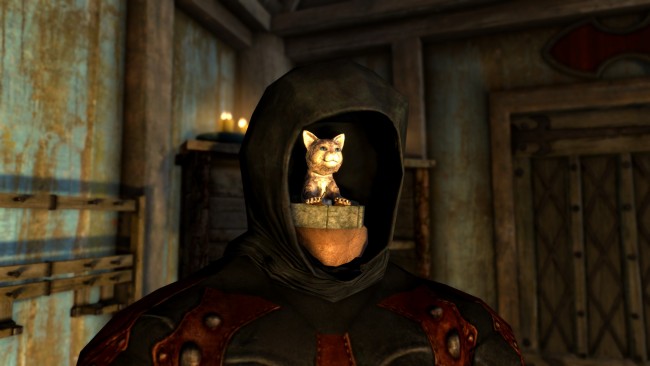
We live in the god damn future. I can look down at my black slab of illuminated glass, like a wizard flicking through his oldest spellbook, and touch it to find out how to make okonomiyaki without yam. I can send a drawing of a fish in a business suit to my friend on the other side of the world, or talk to him with my voi- HA! Sorry, couldn’t get through that one. Point is, we live in amazing times, and how we buy video games has been influenced tremendously by technology. Many have abandoned CD’s in favour of an internet connection and a client, myself included. It’s easier than driving to a shop for a shiny disc, for sure, but this shift has got me thinking whether I really own what I buy.
If I buy a CD, I own that CD. I can pick it up and crack it in half to destroy whatever digital goodies were on there, because I’m a sick, demented character who just learned what moments are. I own that physical thing, no question, but what about the information on that disc? Ten years ago, the disc was the only way to access the game, but with the proliferation/magic of the cloud, discs are more like delivery services than a product these days. DRM has ensured we can take our Steam libraries wherever we go, but does that mean we own the games in our libraries or that we’re just allowed to access them? To help answer that question, let’s pretend you’re a mage.

You’re this guy. But with a better name. And a better job title. And real.
You, dude, are a mage, a wielder of dark arts and conduit of ethereal magic. Go you! As a mage, you can harness the power of magic by using spells, which you bought or learned from some guy who refuses to release a third radiation incantation. The important thing to note here is that you own the spell, not the magic itself. This is kinda like saying that you have permissions to access a digital game, but you don’t actually own a copy of it. You can invoke the power of magic with a spell, and you can get a game through GOG, but you don’t OWN that game, nor do you own the lightning emanating from your fingers. No, see, you’re just allowed to use it when you buy it.
With almost any digital distribution service like Steam, Bandcamp or other digital goods store, what you’re getting when you buy something are digital rights to information. The guys selling you digital games have a list of games you can access from their service, so when you buy a game from the GOG store, you’re just buying the right to download it. This obviously comes with a whole bunch of terms and conditions that no one ever reads because frak that, but suffice it to say, you’re buying permissions, not products. If this sounds despicable to you, calm down, there’s nothing wrong selling digital goods this way. It means that what you’re buying is a lot more robust than a CD or USB drive.

Pictured: The future of the past.
Twenty years ago, there was no cloud to download your game from, so your copy of the game was limited to the disc it came on. Now, thanks to the internet, instead of having to use a disc to access the game, we can get it straight from the source. It’s like if you, the mage that you are, had to use a scroll to cast a spell instead of phoning up the guy who taught it to you to remember what the third utterance was meant to be. We’re no longer limited to the physical issues that discs present (like your scroll catching fire), so we can access our games wherever and whenever we want. However, if the service that we’re accessing the game from disappears, then we’re shit outta luck, and this is what weirds me out.
If I buy a digital game, I don’t own that game, I only own the permission to access that game from that service. So, that means that my ownership of the games I bought with my money lies in the hands of who ever is running the service. If, say, Steam went away (it’s not, but imagine Godzilla ate the servers), then I suddenly can’t access the games I bought from them. I might have backed up copies of the games on a hard drive somewhere, but I can’t grab those same games from GOG or Humble Bundle because, obviously, I only bought permissions to access them from Steam. On top of that, what I’m allowed to do with those games is similarly restricted.

… Take that last sentence with a grain of salt
Back in the day, if my friend wanted to borrow a game, I’d just lend them the disc and that was that. Modern digital downloads don’t quite offer that same freedom. Games are linked to accounts, but whether you’ll be allowed to let someone else borrow that game depends on the service you got the game from. Steam allows library sharing between “family members”, but your friend needs a Steam account to access them, and only one person can access the same game at a time. GOG is a bit more lax, but their EULA specifically prohibits two or more people using that copy of the game at the same time… But let’s be real, they know what happens at LANs. In both cases, you’re at the behest of the distributor unless you break the law, but that’s as much the problem as it is the point.
The glaring issue with digital downloads is that they’re fundamentally different (i.e., easier to pirate) than physical copies, which is why DRM has become more about enforcement than accessibility. Steam, Uplay and Origin have fairly heavy handed EULA’s, each requiring a dedicated client to run – not download, run – your purchased games. GOG is a bit more forgiving, but good luck finding any modern games that aren’t from indie devs there. This isn’t restricted to digital stores though; there are plenty of games that use inconvenient enforcement tactics to ensure DRM is maintained.

And this shit ain’t converting me.
Being required to log on for online games, like LoL or EVE, is reasonable, but there are games that require an internet connection to play offline. If you want to play Starcraft 2, Wargame: Red Dragon or Age of Wonder 3 offline, you’re going to need an internet connection and an account with their respective services. This is to make sure that everything you do is tied to a common account wherever you go, but it also means that you can be locked out, whether that’s through banning or the servers being down. However, more and more games are going down this road, and instead of offering a product, games are now being toted as services, so whether or not you own those games turns into a non-issue… sorta.
If we consider games as something that isn’t owned so much as engaged with, then the issue of ownership disappears, but not in a way I like. So, for instance, you don’t own WoW or LoL, you just pay to partake in it’s services (first ride on the LoLercoaster may be free…) and use different skins or characters when you want (… but it’s deceptive). You don’t own Destiny, you’re just allowed to access those servers via the software on the $60 circle shaped key that you slide into your PS4. You run a client, but that client isn’t the game, it’s just a conduit to the service being provided.

24/7 servers. Consistent updates. Clear communication with community. That’s a service.
The problem is that very few games could be considered a service by anyone that wasn’t betrayed by their pet rock at the age of 17. Jim Sterling delved into this a little, explaining that calling games a service was used more to justify imperfections at release than genuinely offering a service to the customer. Games that offer continuous content and upgrades, like EVE or LoL, fall into the category quite nicely, but calling GTA V a service is cutting it. It’s also unfair to call games a service when they have very little content at release, like Evolve, and barely follow through once the day one DLC is released. So, if games aren’t a service because they rarely offer one, but you’re buying the service of accessing the game via permissions, where does this leave ownership?
As I’ve said, when you buy from a digital store, you’re buying permissions to access a game, but you’re not acquiring ownership of the game itself. You’re also not buying the ‘service’ of the game, because releasing patches or forcing always-on functionality for a game doesn’t suddenly make it service. All you’re doing is buying access to the game from a client, which is more flexible if you need to access your games, but you’re at the behest of the provider to ensure that the game stays available. So, if I don’t own my games, who the fuck does?!

Well you… Uh… It’s… Look, th… Mmm…
… No, seriously, I have no clue who owns my games, and it’s not an easy question to answer. At best, I’m renting all of my Steam games for an indefinite period of time, and at worst, Valve or the publishers could strip me of their game without hesitation (like my physical copy of Bulletstorm). I’m deeply unsettled by the idea that my library could be quarantined from me, despite the fact that I paid money to secure ownership of those games. I still own the discs of old games, and I can install them on my computer without worrying about obtrusive DRM because, well, that was all the DRM that we needed back then. These days, the lines have gotten murkier, but the fact that we don’t fully have the answers to the questions digital ownership presents is kinda worrying.
There’s no easy answer when it comes to DRM, but the way Steam or UPlay are currently tackling it isn’t a great solution. GOG may be the best store I’ve seen, but very few publishers seem willing enough to hop on that bandwagon. It’s not that I don’t like being able to access my games from the cloud, it’s just that the uncertainty that arises when I think about whether I really do own my games is something I could do without. Still, it’s nice to not be drowning in shiny chrome circles. This isn’t Stargate, after all. Yet.











